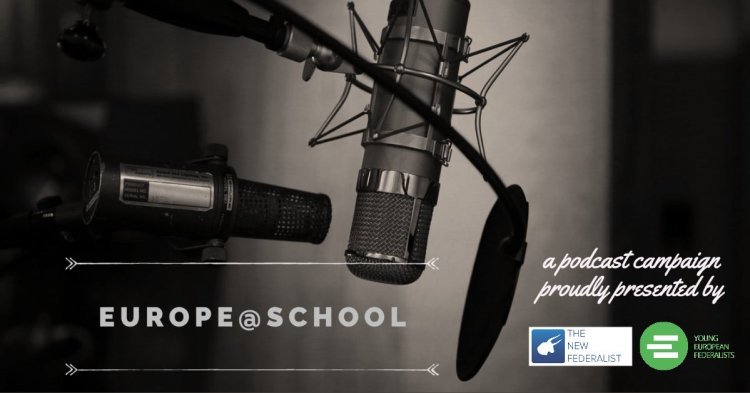This year, JEF Europe wants to take this further and develop the inclusiveness of this programme with the Annual Work Plan 2020 called “Europe@School: New Directions”. The objective of the project is to help youth workers and educators who work in European Civic Education with disadvantaged groups of learners. JEF Europe and The New Federalist are pleased to announce that we are teaming up to launch a podcast campaign to provide information on European policy relevant to these groups.
This is where you come in!
The idea is to provide an online pedagogical tool to translate the sometimes difficult language used by the European institutions. The target audience is therefore civic education workers as well as young people who are curious about these issues. We are therefore seeking keen volunteers to help us make podcasts on aspects of European policy which are relevant for young people with disabilities, young Roma and other minorities, as well as young migrants and refugees.
No special equipment or experience of podcast-making are required - just enthusiasm and a smartphone!
The podcasts will be available on the websites of JEF Europe, Europe@School and The New Federalist, potentially reaching up to 200,000 young people.
Here’s how to do it - guidelines for making a podcast for Europe@School
CONTENT
Choose an event, law or directive (preferably a recent one) which is relevant to one of the groups mentioned in the introduction. For example, it could be the European Disability Act. Explain what the event/law/directive entails according to the format below.
No jargon needed, just a breakdown of current events and policies affecting these groups at the European level. Send a script of the introduction and a rough plan for the rest of the podcast to Théo Lecarpentier (theo.lecarpentier at jef.eu), who is coordinating the Europe@School project for JEF Europe, prior to recording for checking.
FORMAT
– DURATION: 4-7 minutes maximum
– INTRODUCTION: give your names and your studies/job very briefly, then move on: what is the topic of your podcast? Outline the law/event/subject in a clear manner.
– MORE DETAIL: why did it happen? What will the impact be?
– DEBATE (if at least two people are working on the podcast): your opinions – is this a positive or negative development? What could be improved?
– CONCLUSION: what is the wider context? What might happen next? If needed, what can be improve?
PRIOR TO RECORDING
– If you are a student, your university may have a student radio station from which you can borrow a microphone.
– If not, recording with a smartphone works absolutely fine! Some record with a higher quality than others so if there are several of you working on a podcast, test all the phones to see which is best. You can download a recording app for free.
– Leave the microphone on a table in front of you throughout recording, do not pass it from speaker to speaker as that creates a lot of background noise. If necessary, sit close to each other and close to the microphone or smartphone.
– All the speakers should be equidistant from the microphone and speak at a similar volume. If one person is naturally much louder than the others, sit further away!
RECORDING YOUR PODCAST
– **Run some sound tests prior to recording!**
– It is better to record slightly too quietly than slightly too loudly but of course we still have to be able to hear you.
– Speak naturally, it’s OK to say um and er! But don’t swear ;)
– Plan carefully so that you can record all in one go without a break - it will be much easier! If you do wish to cut part of the recording, you can use Audacity, which is free to download, but be careful that you cannot tell that it has been cut - cut during silence, not in the middle of a word or a breath!
Send the file in mp3 or wav format to madelaine.pitt at jef.eu and theo.lecarpentier at jef.eu when it is finished. If the file is too big, use Google Drive or Wetransfer to send it.
We look forward to receiving your contributions and making Europe accessible for everyone!



Follow the comments: |
|
